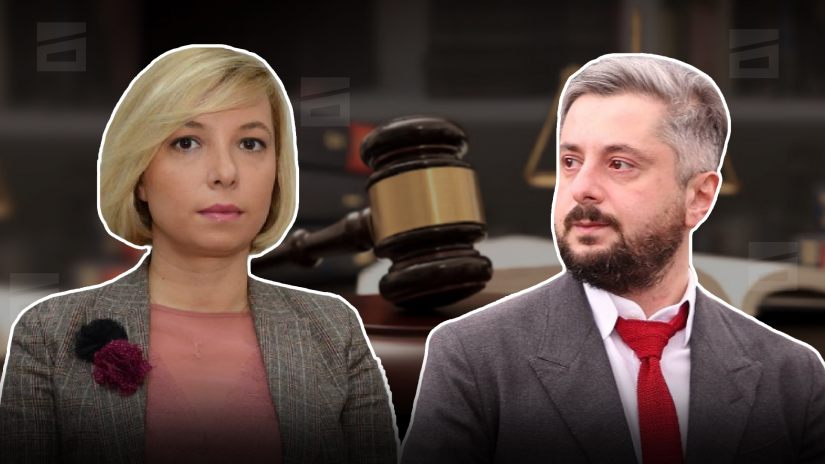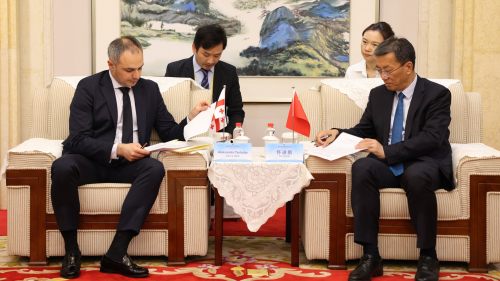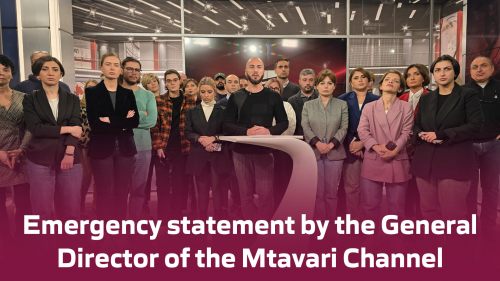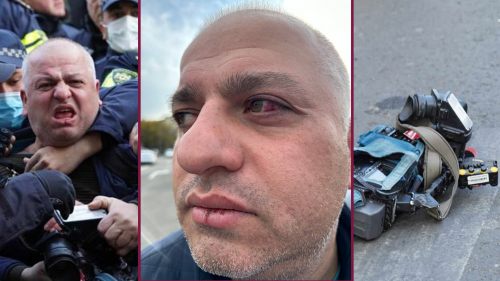
According to the Public Defender's assessment, the political motivation in Nika Gvaramia's criminal case is confirmed - the ombudsman has completed the study of the appeal verdict and is making the conclusion public.
We read in the document that Article 18 of the European Convention on Human Rights is violated in the case of Nika Gvaramia - restriction of human rights for non-conventional/political reasons.
The aforementioned assessment of the ombudsman was based not only on court decisions, but also on public statements made by government officials addressing Nika Gvaramia and analysis of the media environment in the country.
The Public Defender of Georgia has completed the examination of the judgement of the Court of Appeal against Nika Gvaramia and believes that Article 18 of the European Convention on Human Rights (restrictions on the rights for political or other purposes not permitted under the Convention) was violated in Nika Gvaramia's criminal case. This assessment is based not only on the study of court judgements or case materials, but also on public statements made by government officials regarding Nika Gvaramia (before and after his imprisonment), as well as the analysis of the media environment in the country.
According to the Public Defender's assessment, the judgement of the Court of Appeal against Nika Gvaramia is not substantiated, represents a case of imposing criminal liability for corporate actions, and the political motive in the case outweighs the interest of justice.
Nika Gvaramia was found guilty by Tbilisi City Court in two episodes of Article 220[1] of the Criminal Code (the so-called advertisement and car episodes). He was fined GEL 50,000 and was sentenced to 3 years and 6 months in prison.
In connection with the so-called advertisement episode, the Public Defender of Georgia filed an amicus curiae brief[2] with Tbilisi City Court back in 2019, where she noted that a business decision similar to the one in Nika Gvaramia's case could not lead to criminal or even corporate liability. As for the so-called car episode, the Public Defender published the examination results on June 8, 2022 and pointed out that no elements of criminal offence could be found and that the key factual circumstances remained without a properly substantiated assessment.[3] In addition, we assessed the sentence used by the court of first instance as unjustified. Due to the substantial deficiencies in the administration of justice, the Public Defender applied to the President of Georgia with the request to use the pardon power.[4]
The Tbilisi Court of Appeal aggravated Nika Gvaramia's sentence without proper justification, and the GEL 50,000 fine was changed to 3 years and 6 months of imprisonment. In the rest part, the judgment of the Court of Appeal, like the judgment of the first instance, did not contain justifications regarding key and crucial issues, and all our comments and assessments remain relevant.
Based on the fact that the defense had referred to Article 18 of the Convention, the Public Defender of Georgia studied this issue as well. Taking into account the statements made by politicians, the media environment in the country, the evaluations of local and international partners and the fact that justice was administered with essential flaws, as well as the fact that imprisonment was applied only to Nika Gvaramia, it becomes clear that the legal goal in the case is outweighed by the political goal. This is especially obvious given that the judgements in the criminal case of Nika Gvaramia do not correspond to the fundamental principles of criminal law and lack justification. The Public Defender's assessment is based on the approaches of the European Convention on Human Rights and international organizations.
In accordance with subparagraph "h" of Article 21 of the Organic Law of Georgia on the Public Defender of Georgia, we once again appeal to the President of Georgia to use the pardon mechanism at her disposal in relation to Nika Gvaramia.
We would like to remind the public that this is the second time when the Public Defender of Georgia is evaluating an action as a violation of Article 18 of the European Convention. The first such case was the cartographers’ case.










